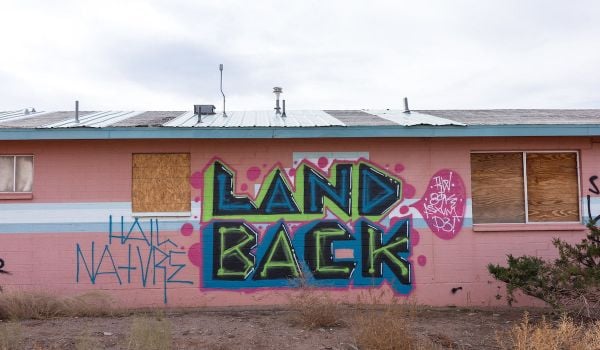Astrid Scholz imagines the financial system as a circulatory system. She’s worried that it’s having trouble reaching the very furthest extremities — the places and spaces where women, people of color and other marginalized groups are trying to start businesses and create jobs for their communities.
Scholz is a founding board member of a new loan fund for women-owned businesses in Portland, where the most recent U.S. Census Bureau data says the average male-owned business is five times larger than the average female-owned business.
“It should be easier to build one of these small loan funds,” Scholz says. “It’s like capillaries that bring the lifeblood of our economy into local communities, so they have to be small vessels.”
Known as XXcelerate Fund (it’s open to trans women and gender-nonconforming individuals, too, Scholz says), Scholz’s loan fund is in the process of approving its first five loans, and she’s still raising funds for the fund itself. For every ten dollars in loans, they have to raise one dollar in loan loss reserves, plus $2.5o for the training and technical assistance both before and after making the loan to each borrower. The XXcelerate team also had to figure out an underwriting process — standardized procedures and documents for each loan — that would elicit confidence from the fund’s investors.
Scholz realized she wasn’t alone in facing the challenge of building a loan fund with some kind of inclusive or equity lens, which is why she recently reached out to about 20 of her peers around the country, convening them in Denver this past October — with support from the Surdna Foundation — to explore how they might find ways of working together to achieve some economies of scale while retaining their unique local lenses and identities — connecting their capillaries to each other and to the rest of the financial system. (The Surdna Foundation also provides funding to Next City.)
“The need is so huge, it’s a multi-billion dollar problem, we’re not going to solve it with a single million-dollar loan fund,” Scholz says. “But there’s actually something to be said for a bunch of small funds that can in aggregate look bigger and attract more capital.”
It isn’t the first time in U.S. history that a bunch of relatively tiny loan funds came together and built some kind of shared infrastructure that would boost their abilities to reach deeper into specific communities. The Federal Home Loan Bank system, created by the Federal Home Loan Bank Act of 1932, connected thousands of tiny savings and loan associations across the country to much larger sources of capital by aggregating each association’s short-term cash needs into one large pool.
By 1938, the Federal Home Loan Bank system had 3,956 member associations whose total assets added up to $4.3 billion — the “largest home mortgage credit pool in the world.”
But of course, savings and loan associations were subject to the constraints of their time, such as redlining. Savings and loan associations were subject to gender constraints as well — until passage of the Equal Credit Opportunity Act in 1974, women were not allowed to obtain a home mortgage without a husband’s signature.
The rise of federally certified community development financial institutions, or CDFIs, precipitated by the 1994 creation of the U.S. Department of Treasury’s CDFI Fund, was supposed to fill in those gaps. But many even in the CDFI industry are starting to admit that CDFIs have yet to meet their promise of transforming the financial sector to reach many historically redlined or otherwise marginalized communities.
“The CDFIs, at least here in Oregon, they started over time acting more like regulated banks,” Scholz says. “There’s this mythology that CDFIs stepped into community lending, but it doesn’t quite bear out, or it bears out in very specific sectors or very specific target customers they might have, but it’s not a broad-based solution.”
The loan funds Scholz gathered in Denver included Detroit’s Build Institute, Cincinnati’s MORTAR, one of the groups behind Albuquerque’s co-op capital partnerships, and the Boston Ujima Project — which opened its loan fund for investment at the end of 2018.
The Boston Ujima Project will be making loans to businesses selected by residents of Boston’s communities of color, in a city where the median wealth of white households is $247,500 while the median wealth of black households is $8. (Yes, $8.) The project has raised nearly $1.3 million for its loan fund so far, in addition to nearly $200,000 for its loan loss reserve — and they are currently in the final stages of approving their first loan, to a worker-owned food composting cooperative. They’ve found success pitching to a variety of investors and giving them a menu of options, from investing in the main pool of capital for loans, the loan loss reserve, or an option that gives Ujima flexibility to put dollars into either loans or loan loss reserve.
Fund manager Lucas Turner-Owens says they’ve been lucky so far finding investors “whose purpose is to really drive racial equity outcomes and to support funds like ours.”
Ujima has also found investors who feel they no longer need to grow their wealth much, if at all. Out of 179 total investors in Ujima’s loan fund so far, 57 have opted to discount the interest rate to which they’re entitled. Some have opted to forego earning any interest at all, Turner-Owens says.
All that said, like XXcelerate Fund, Boston Ujima Project also needs to raise dollars for technical assistance to borrowers both before and after extending a loan. Whether it’s a woman-owned business, a minority-owned business or a cooperatively owned business, the whole point of these loan funds is to support businesses that are fighting against the mainstream current of an economy built mostly by and for straight white cis-male owned businesses.
“We’re not asking for more general workshops or a six month curriculum, but the one-on-one time,” Turner-Owens says. “There are some really great business support organizations doing good workshops and good curricula, and it’s no shade on their work, but the one-on-one technical assistance is really not there.”
Coming up with an underwriting process can be another key constraint. You can have the most outrageous early stages of generating a pipeline of potential borrowers — the Boston Ujima Project has a democratic process where members vote on who’s eligible for a loan, as well as voting on each and every loan itself. But if you want to bring outside capital into the equation, at some point those borrowers have to go through standardized procedures that make accountants and financial advisors feel comfortable
In Portland, rather than coming up with its own underwriting process, XXcelerate Fund is borrowing one from a more established group. The fund got connected to Colorado Lending Source, a nonprofit lender based in Denver, which started out 29 years ago as a specialist in making loans guaranteed by the U.S. Small Business Administration. Today Colorado Lending Source has more than $500 million of loans in its portfolio.
About eight years ago, noticing they were missing out on many promising borrowers because of credit score and collateral requirements that had infiltrated the SBA programs, Colorado Lending Source started tinkering beyond SBA-guaranteed lending, using a character-based lending product that ignores credit scores or collateral.
“What we look for is a leadership team,” says Mike O’Donnell, executive director. “It might be one person, but do they have a mentor or are they part of a network. If they’ve got that, I can tell you they’re more likely to be successful than someone who just puts their head down and goes it alone.”
Scholz compares it to a job interview, where you provide some references for the person on the other side of the table to ask about you.
For now, XXcelerate Fund is working with potential borrowers to prepare them to apply for a loan, and then the completed application packets go to Colorado Lending Source, who conducts their usual character-based underwriting process (involving lots of phone calls with references and the borrower). The Colorado nonprofit then sends the application back with a “final credit memorandum” with a recommendation to make the loan or not — but XXcelerate’s local loan council in Portland still has the final say.
After so many loans processed, XXcelerate expects to take over underwriting on its own.
“If we teach them how to do that, then they won’t need us, which is fine,” O’Donnell says.
O’Donnell says Colorado Lending Source is spinning off a different entity to scale similar partnerships nationally, either to provide back office services to loan funds or to help those funds get started.
“If they have a pipeline and capital, as some of them do, and they don’t have a method for deploying that capital, we can help them with that,” O’Donnell says.
The Colorado nonprofit actually hosted Scholz’s collective loan fund gathering in October, at its Denver headquarters. The whole group is still thinking through what it might collectively do next.
“It was a group of loan funds saying how do we build a mutualistic infrastructure that helps as attract more capital and deploy more capital,” Scholz says. “It didn’t take us long to find 20 or so other small loan funds like ourselves that are serving underserved entrepreneurs, whether they’re focusing on rural or women or communities of color.”
This article is part of The Bottom Line, a series exploring scalable solutions for problems related to affordability, inclusive economic growth and access to capital. Click here to subscribe to our Bottom Line newsletter.

Oscar is Next City's senior economic justice correspondent. He previously served as Next City’s editor from 2018-2019, and was a Next City Equitable Cities Fellow from 2015-2016. Since 2011, Oscar has covered community development finance, community banking, impact investing, economic development, housing and more for media outlets such as Shelterforce, B Magazine, Impact Alpha and Fast Company.
Follow Oscar .(JavaScript must be enabled to view this email address)


















